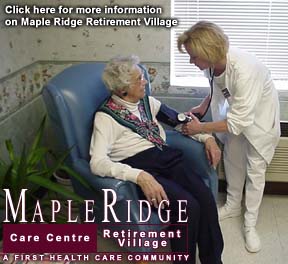|
"Strong
Women, Strong Bones"
[MAY 15, 2000]
"Strong
Women, Strong Bones: Everything You Need To Know To Prevent, Treat,
And Beat Osteoporosis." Miriam E. Nelson, Ph.D., G.P. Putnamís
Sons, 2000, 318 pages. |
|
 In
her new book "Strong Women, Strong Bones," Dr. Miriam
Nelson defines osteoporosis as "a chronic, progressive
disease characterized by low bone mass, leading to bone fragility
and increased fracture risk." Each year, according to Dr.
Nelson, millions of women suffer symptoms that they donít always
associate with fragile bones. Her work in nutrition and physical
science has inspired her to write an encompassing, all-in-one
guide that outlines the ways that you can prevent, treat and beat
osteoporosis. In
her new book "Strong Women, Strong Bones," Dr. Miriam
Nelson defines osteoporosis as "a chronic, progressive
disease characterized by low bone mass, leading to bone fragility
and increased fracture risk." Each year, according to Dr.
Nelson, millions of women suffer symptoms that they donít always
associate with fragile bones. Her work in nutrition and physical
science has inspired her to write an encompassing, all-in-one
guide that outlines the ways that you can prevent, treat and beat
osteoporosis.
"Strong
Women, Strong Bones" is divided into four sections, each
section containing three different chapters. One of the most
important lessons of the book is found in the first section
entitled, "Osteoporosis Is Preventable." Taking a
positive approach to the fight against this crippling disease is
the focus of this section. The section contains an important
chapter debunking some of the myths about osteoporosis, including
the greatest myth of all: osteoporosis is an old ladyís disease.
According to Dr. Nelson, women in their 20s and 30s can also
become afflicted with osteoporosis. Other information includes a
description of the composition of bone mass and structure and how
this disease can attack its victim without any symptoms, early
pain or outward signs.

The
second section, "Check Out Your Bones," contains test
questions to help you determine whether you are at risk for
osteoporosis. The test results help the reader answer the question
posed by the author, "Do I need a bone density test?"
This section concludes with a chapter on the risks associated with
falling and the importance of good balance.
In
section three Dr. Nelson recommends "feeding your bones"
as one of the best strategies to prevent osteoporosis. Her
nutritional advice emphasizes the importance of a calcium-rich
diet, since calcium consumption and bone strength are related. In
"Bone Boosting Workouts," she touts the advantages of a
sensible exercise program. The exercises are illustrated and
contain diagrams that help you chart your target heart rate and
weekly progress goals. A frank discussion about the existing and
promising new medications and drugs on the market concludes this
section.
(To
top of second column)
|

The
bookís final section, "Standing Up To Osteoporosis,"
brings all of the information together in workbook form. This is a
lifestyle-altering chapter and has Dr. Nelsonís recommendations
for women of different ages and a personal plan for developing and
maintaining strong bones. She also includes some helpful charts and
forms to assist you in your program. The bone-friendly shopping list
and the exercise logs are especially useful.

The
book concludes with a glossary of terms, a list of references used
by the author and an index.
Dr.
Nelsonís new book is an important contribution to the literature
of womenís health. The bookís straightforward style, combined
with an encyclopedic approach to the subject matter, makes it an
essential information source. The self-explanatory format of each
section takes the reader through a step-by-step program to combat
this disease. "Strong Women, Strong Bones" is highly
recommended for anyone who is interested in obtaining current,
reliable information on osteoporosis.
For
more information visit the library at 725 Pekin St. or call
217-732-8878.
[Richard
Sumrall, Lincoln Public Library District]
|

